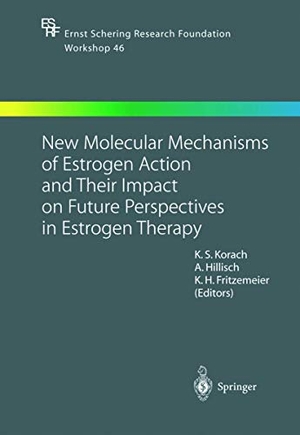Für statistische Zwecke und um bestmögliche Funktionalität zu bieten, speichert diese Website Cookies auf Ihrem Gerät. Das Speichern von Cookies kann in den Browser-Einstellungen deaktiviert werden. Wenn Sie die Website weiter nutzen, stimmen Sie der Verwendung von Cookies zu.
Cookie akzeptieren
New Molecular Mechanisms of Estrogen Action and Their Impact on Future Perspectives in Estrogen Therapy
- Springer Berlin Heidelberg
- 2004
- Gebunden
- 236 Seiten
- ISBN 9783540402503
From our current knowledge, it is obvious that estrogen action in volves more than reproduction and fertility. Rather, estrogens affect and influence a number of other organ systems such as the immune, cardiovascular and central nervous system as well as the gastrointes tinal tract, urinary tract and skeleton. The importance of estrogens and estrogen receptor activity is appreciated from the spectrum of significant physiological dysfunctions that occur when there is a loss The participants of the workshop VI Preface of the hormone or the receptor activity. Loss of estrogen, however (for instance during menopause), occurs with time and results in a variety of clinical conditions. We
Mehr
Weniger
zzgl. Versand
in Kürze